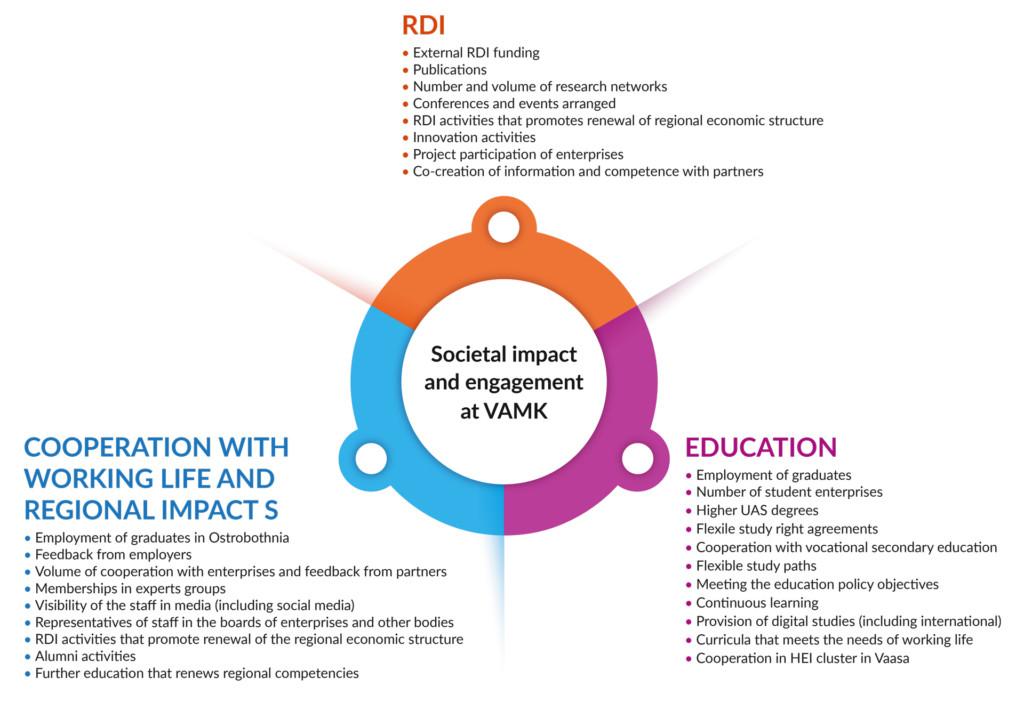Societal engagement is rooted in the strategy and based on dialogue
VAMK is highly aware of the responsibility it has as an HEI for its societal impact and its impact on the region. For VAMK, societal engagement does not only support the implementation of its overall strategy – it is a central element of the strategy. VAMK’s President’s firm statement on societal engagement and impact shows the direction of the development. The aims of societal impact are strongly rooted in the institutional strategy and connected to regional business life, networks, and strategies. VAMK staff have a common understanding of the importance of societal interaction and impact, and managers are aware of the goals and challenges that VAMK has to this regard. Societal engagement is interpreted throughout the institution as a horizontal activity that should be considered in all core duties.
The student union VAMOK has a strong position within the institution. Expanding RDI work would provide students with a broader platform to participate in the social interaction of the university. Overall, VAMK has defined clear ways to reach the goals it has set. These include partnerships, new interworking platforms and active networking in the region. The challenge is to make networks and partnerships more visible and to develop them systematically.
The interviews confirmed that VAMK has a good understanding of the developments in its operational environment. The understanding stems particularly from open dialogues that VAMK systematically undertakes with its partner organisations. Because of these close ties to stakeholders, VAMK gathers information through many channels: individual one-on-one discussions, advisory committees, joint RDI projects, student placements, student projects, surveys, networks, partnerships, etc.
A more systematic approach to information would support societal impact
The big question for VAMK seems to be: how can the waves of techonogical and societal change be grasped both sooner and better? Based on the interviews, VAMK would benefit from more systematic ways to analyse and synthesise the information that it gets from various networks and partners. The new interdisciplinary platforms are promising and could serve as a needed place to aggregate information for different institutional users and to identify longer term trends and global developments. In addition, if the new key account managers for parnerships are able to successfully network, it could ensure that the information from partnerships flows efficiently and effectively across the organisation and add further insights to the partnership process.
